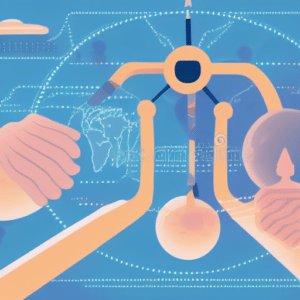There has been a lot of talk recently about the advantages of decentralized finance, or DeFi. If you are new to the Web3 world, you may be wondering what decentralized finance is and how it is different from the traditional financial system.
Decentralized finance is the use of blockchain technology to create financial products that do not rely on a bank or other financial institution. These products include decentralized exchanges, peer-to-peer lending platforms, and asset management platforms.
DeFi represents a big change in how financial transactions are made. It is different from the traditional financial system because it has no central authority. Instead, DeFi applications give power to the people. This offers several advantages over traditional finance.
Decentralized finance has become more popular in recent years as blockchain technology and cryptocurrencies have become more widespread.
In this article, we will highlight the six key advantages of DeFi.
The Web3 Research Institute is reader-supported. When you buy through links on this site, we may earn a commission at no cost to you.
1. Newer Financial Instruments
DeFi allows for different types of financial products that are not possible under the traditional financial system.
For example, decentralized exchanges have emerged as a popular way to trade cryptocurrencies like Bitcoin and Ethereum. This is because it allows people to trade without high fees and strict regulations.
Similarly, DeFi protocols like MakerDAO and Compound allow people to borrow and lend cryptocurrencies without using a centralized lending institution.
2. Lower Barriers to Entry
One of the benefits of DeFi is that it lowers the barriers to entry for financial services. In the traditional financial system, people must go through banks or other institutions to access financial services.
With DeFi, however, anyone with an Internet connection can access a wide range of financial services.
3. Greater Accessibility
Another advantage of DeFi is that it is more accessible than the traditional financial system. Because DeFi applications are built on blockchains like Ethereum, anyone in the world can use them. This means that people in countries that do not have traditional banking systems can still access DeFi applications.
4. Increased Security
DeFi applications are also more secure than the traditional financial system because they use blockchain technology. This technology makes the applications immutable, meaning it is very difficult to delete or change financial transactions.
Additionally, as there is no central point of control, there is no single point of failure that could lead to a system-wide collapse.
5. Improved Transparency
Another benefit of DeFi is that it is more transparent than the traditional financial system. In traditional finance, transactions can be hidden.
With DeFi, however, all transactions are recorded on the blockchain and are visible to everyone. This increased transparency can help to reduce fraud and corruption.
6. Lower Costs
DeFi is also cheaper than the traditional financial system. This is because there are no intermediaries involved in DeFi transactions. So people can save on the fees they would otherwise need to pay to banks or other institutions.
Related Articles

DeFi Regulation: The Ultimate Guide
In this in-depth guide, we explain everything you need to know about DeFi regulation. From the benefits to the challenges, we cover it all!
